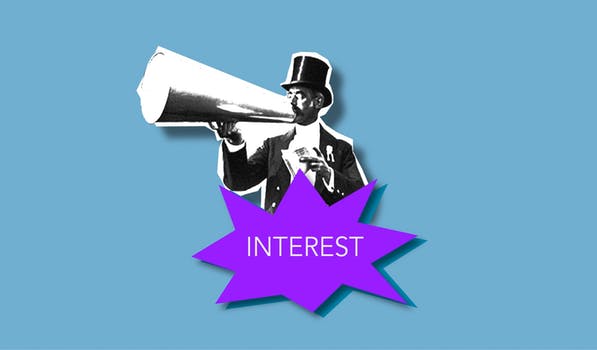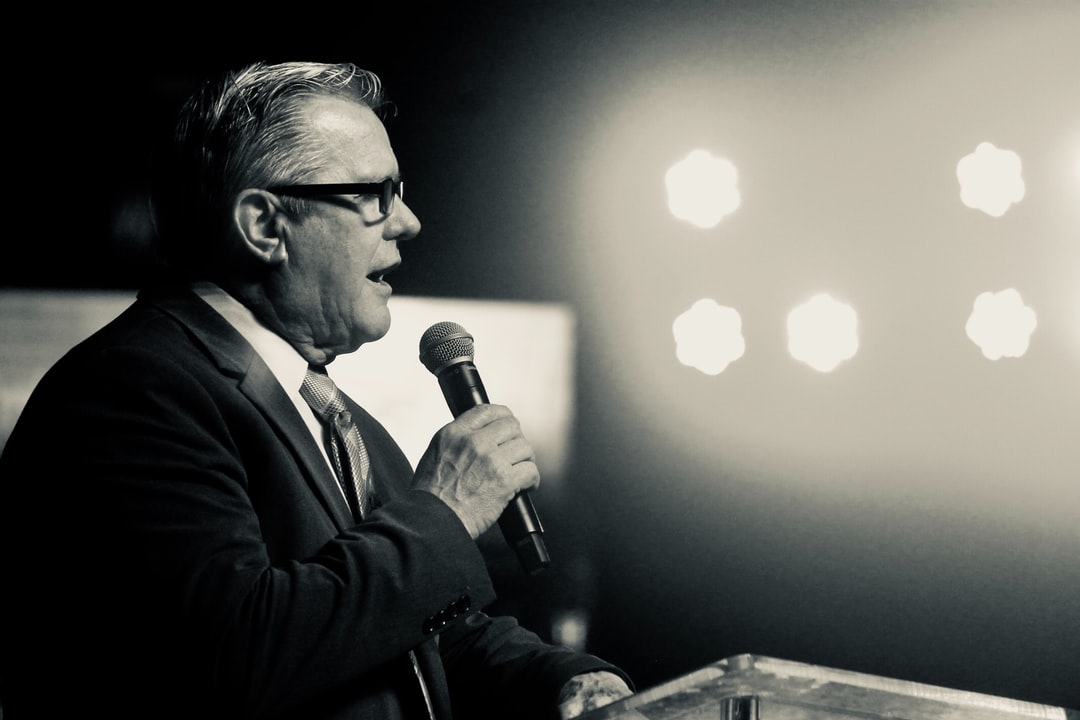
Do you “feel the fear” when asked to do some Public
Speaking?
Public Speaking is still one of our greatest fears and it
turns grown men and women into nervous wrecks. The mere
thought of it turns our tongue to cotton wool, causes our
internal plumbing to act up and turns our knees to jelly.
Well, there’s no need for all of this because help is at
hand. All you need to remember are your P’s and Q’s.
Let’s start with the P’s
Preparation –
When you sit down to write what you’re going to say, bear in
mind who you’ll be speaking to. Will they understand what
you’re talking about; will they understand the technical
stuff and the jargon? If in doubt remember the old saying –
“Keep It Simple Stupid”.
Make sure that what you say has a beginning, middle and an
end. Think of some anecdotes that help reinforce your story.
People think visually so paint verbal pictures for your
audience. And always remember, people want to know what’s in
it for them – so make sure you tell them!
Place –
Have a look at the venue before the event if you can. It’s
not always possible, however, even if you get there half an
hour before, you can check out where you’ll be speaking.
Stand at the point where you will deliver from, imagine
where the audience will be and check that they can see and
hear you. You may even wish to place a glass of water where
you’ll be able to find it.
Personal Preparation –
Before any Public Speaking event, think about what you are
going to wear; when in doubt dress up rather than down. You
can always take things off for a more casual look. Men could
remove their jacket and their tie. Women could remove items
of jewellery.
Part of your personal preparation should include some mouth
and breathing exercises. Practise saying some tongue
twisters to give your speaking muscles a good work out. Take
a deep breath and expand your diaphragm. Then breathe out,
counting at the same time; try and get up to fifty and not
pass out.
As part of your personal preparation, write your own
introduction. Write out exactly what you want someone to say
about you, large font, double-spaced and ask the person
introducing you to read it. Believe me they won’t object and
will probably be pleased and impressed.
Poise and Posture –
Whenever you’re called to speak, stand up or walk to the
front quickly and purposefully. Pull yourself up to your
full height, stand tall and look like you own the place.
Before you start to speak, pause, look round your audience
and smile. You may even have to wait until the applause dies
down. Remember, you want the audience to like you, so look
likeable.
Pretend –
I’m suggesting you pretend you’re not nervous because no
doubt you will be. Nervousness is vital for speaking in
public, it boosts your adrenaline, which makes your mind
sharper and gives you energy.
The trick is to keep your nerves to yourself. On no account
tell your audience your nervous; you’ll only scare the
living daylights out of them if they think you’re going to
faint.
Some tricks for dealing with nerves are:
Before you’re called to speak, get lots of oxygen into your
system, run on the spot and wave your arms about like a
lunatic. It burns off the stress chemicals.
Speak to members of your audience as they come in or at some
time before you stand up. That tricks your brain into
thinking you’re talking to some friends.
Have a glass of water handy for that dry mouth. One word of
warning – do not drink alcohol. It might give you Dutch
courage but your audience will end up thinking you’re
speaking Dutch.
The Presentation –
Right from the start your delivery needs to grab their
attention.
Don’t start by saying – “Good morning, my name is Fred Smith
and I’m from Smith Associates.”
Even if your name is Smith, it’s a real boring way to start
a presentation. Far better to start with some interesting
facts or an anecdote that’s relevant to your presentation.
Look at the audience as individuals; it grabs their
attention if they think you’re talking to them personally.
Talk louder than you would normally do, it keeps the people
in the front row awake and makes sure those at the back get
the message. Funnily enough, it’s also good for your nerves.
PowerPoint –
As a professional speaker, I’m not that stuck on
PowerPoint. I feel that too many speakers rely on it and it
takes over the presentation. After all, you’re the
important factor here. If an audience is going to accept
what you say then they need to see the whites of your eyes.
There needs to be a big focus on you, not on the technology.
Use PowerPoint if you want but keep it to a minimum and make
sure you’re not just the person pushing the buttons. Why
not get a bit clever at using the faithful old Flip Chart,
lots of professionals do.
Passion –
This is what stops the audience in their tracks. This is
what makes them want to employ you or to accept what you’re
proposing. Couple this with some energy, enthusiasm and
emotion and you have the makings of a great public speaker.
Give your presentation a bit of oomph and don’t start
telling me – “I’m not that kind of person.” There’s no need
to go over the top but you’re doing a presentation to move
people to action, not having a cosy little chat in your
front room.
That’s the P’s finished, so let’s look at the Q’s.
Questions –
Decide when you’re going to take them and tell people at the
start.
In a short speech it’s best to take questions at the end. If
you take them as you go then you may get waylaid and your
timing will get knocked out of whack.
Never – never – never finish with questions; far better to
ask for questions five or ten minutes before the end. Deal
with the questions and then summarize for a strong finish.
Too many presentations finish on questions and the whole
thing bites the dust..
When you’re asked a question, repeat it to the whole
audience and thank the questioner. It keeps everyone
involved, it gives you time to think and it makes you look
so clever and in control.
Quit –
Quit when you’re ahead. Stick to the agreed time; if you’re
asked to speak for twenty minutes, speak for nineteen and
the audience will love you for it. Remember, quality is not
quantity.
One of the most famous speeches ever – “The Gettysburg
Address”, by President Lincoln, was just over two minutes
long.
Right, that’s my cue to quit when I’m ahead.
Now that you’re armed with this information you too can
minimize your fear of Public Speaking.
If you found this article useful, please like and share. Leave a comment.
Subscribe to my blog so you will notified when I write something new!
Thanks.
Lee

6 replies to "Taking the FEAR out of Public Speaking"
Hi Lee,
I don’t get to do public speaking a lot. Something I noticed is even at first when I got on camera to do a video, a switch flips in my brain and I start saying erm a lot, and feel more nervous than I should. I’m improving at that as I do it more.
I find with speaking about things in public, the more I feel like an expert on a particular subject, the easier it is to do the speaking. I get quite uncomfortable trying to bluff my way through a presentation.
And I’m so glad that you didn’t say imagine everyone naked. I’ve never understood how that would help someone be a better speaker!! You alluded to it, and I also found this myself, that if I’m talking to friends, or people who I know, or people who know they want the information I have, I do better. If I feel like the people listening are supportive of you, that seems to go better as well.
I’ll definitely be reading through your blog with interest, as I’d like to get better at this.
Cheers,
Martin Platt
https://martin-platt.com
I found your post really interesting, I dont do any public speaking anymore but I used to do a great deal. My biggest audience was 2000 people all about the developing technology called the Internet. That was in the good old days.
My struggle was always filling the time as I am one of those people that like to be brief, get the key points over and move on which could at times be a problem.
The one thing I have noticed more recently is that presenters will start each sentence with “So”. Personally, I find that irritating, bad English, and I spend more time listening for the word than I do to the content.
Now I have found your blog I shall read the rest with interest.
Hello Lee,
It is good to see some useful comments on public speaking. I will never forget the first time I spoke in public. The first sentence came out as complete gobbledegook and I felt like a real fool.
I agree with all your comments but the most important one to me is preparation. I often speak in church and I am also a quiz master once a month. I always need to read through the questions so I am prepared for that awkward word I have used in one of the questions.
The more you speak in public the more you get used to it and I find this helps to build up your confidence for the next time.
Great post Lee.
I used to hate speaking to crowds, until a group of 3 McKinsey consultants came to the company I worked for, to deliver a week-long course on public speaking.
That was the year 1993, after that workshop I just loved speaking to crowds.
Here are some tips they gave me.
* prepare, prepare, prepare, and rehearse, rehearse, rehearse. If you don’t know your subject by heart, you shouldn’t be giving the presentation.
* if you’re nervous when you get on the stage, most people are, gently grab onto something. It could be the speaker’s podium, a chair, the table, etc.
* never look down to the ground, away from the audience, or at the screen where your presentation is projected.
* pick a few people in the audience and speak to each of them, alternating which person you speak to. The rest of the audience will follow.
* use your hands to emphasize an important concept, but don’t swing your arms, you’re not at the circus!
* if you’re using PowerPoint, don’t put too many words on the slide, just the main points and talk over them.
* remember to enjoy the moment!
Finally, remember that no one in the audience wants you to fail.
Julius
Good tips, Julius! Thanks for your input. I’ve performed and spoken in front of all sizes and types of audiences over the past 40 years and I still get butterflies before I walk on stage!
Hi Lee.
I don’t do a lot of public speaking but I can see why people would be scared to do it.
Nice post with some really good points.
Would I speak publicly? Yes! I would, being a veteran i was used to it but that was 40 years ago.
Regards
Ron Rodwell